no shore in sight
Charting the unknown waters of a global crisis
Photo by Artak Petrosyan
This morning I woke up and felt fear for the first time since COVID-19 entered my psyche. Previously, I was cautious and concerned, but unafraid. This acute global crisis is one I’d imagined many times over the years. It’s felt like a 1000-foot wave that would eventually come to shore and disrupt life as we know it. I didn’t necessarily imagine this virus, in this way — certainly not at this exact time — but the karma of the marriage of globalism and capitalism, and their offspring: entitlement and convenience, was destined to return to the source in an attempt to rebalance the planet’s natural, sustainable system.
It’s a sobering moment in our human story — as it should be. We’re looking at a seemingly insurmountable gap between how we have been living since the rise of the industrial revolution and globalization and how life as we know it will drastically need to change if we are to survive, let alone, thrive as a species.
COVID-19 shows our vulnerabilities — someday we will see this moment as a gift or a deep regret. Our systemic vulnerabilities cannot be denied by any rational thinking person. Though, many will continue to fight off reality in favor of a fictional story. But, it's hopeful that at some point in the weeks and months to come, nearly everyone effected by how COVID-19 disrupts life as we know it will experience their own version of the come-to-Jesus moment* I had this morning.
A critical mass of people will soon realize that our way of living simply doesn’t support life. While collectively sobering up after hundreds of years on a binge is excruciatingly painful, it marks the beginning of recovery. These early days will be fraught with withdrawal, bargaining, and denial — and for some, physical illness. If we can make it through the darkness, we may find ourselves in a new and beautiful, life-sustaining paradigm.
The gravity of our situation is profound. I can’t imagine any other way people might begin to understand the seriousness of continued climate change than to have the entire world dramatically inconvenienced by a pandemic — which could become commonplace in an increasingly warming world. For some, it is much more serious than an inconvenience. For everyone — I hope this is an awakening.
The silver lining of COVID-19 is that it can be the shock we need to collectively come to terms with the overdue cancellation of the unsustainably-globalized, over-consumptive, and exploitative lifestyle that is the cornerstone of the American way of life.
Since COVID-19 shutdowns, both China and Italy have shown immediate decreases in pollution due to the halting of travel, manufacturing, and other fossil fuel-oriented activities. This is significant evidence of how industrial living by humans results in environmental degradation and, subsequently, climate change. Globally, pollution kills about 4.6 million people every year, not counting cancers and other fatal diseases exacerbated by pollution.
Here is my message: We need to feel the truths we’ve been keeping at bay for generations — as individuals, as families, as communities, as countries, and as a species. We need to let our respective 1000-foot waves crash down on the delusions we’ve let guide us for too long. This is a pivotal moment when we each need to align body, heart, and spirit — coming to a clear mind. Settling into the unfamiliar and uncomfortable space between hope and grief, known and unknown, radical accountability and generous compassion. Not either/or, but both/and. Wholeness requires the integration of all opposing forces. And a lack of wholeness is at the root of this existential crises.
Humanity is now on a raft in the middle of an ocean with no shore in sight. Not being able to rest the mind on absolutes is frustrating, scary, and anxiety-provoking. We want to know when this will be over, but when is not an option for us right now. It may radically improve tomorrow, it may grow direr with no clear end, or it may improve followed by recurrences. There is no resource for easing this uncertainty other than our own wisdom and our willingness to be wholly present with paradox and uncertainty. We’re stepping into uncharted territory, together. We must remember all along the way — all Earth’s 7.53 billion humans, and counting, are in the same boat. How any one of us behaves in this crisis, affects every one of us.
Many of us are in the bargaining stage of this situation. Our plans have been canceled for the foreseeable future. Our outlets for community and connection, off-limits. We’re inconvenienced by a myriad of things and many people will be seriously harmed by job losses, lack of health insurance, mental and physical illness, hoarding, over-crowded hospitals, loss of retirement savings, foreclosures, evictions, opportunists, and distance from loved ones. We just want this virus to go away, so we can get on with our lives.
The sobering truth is that no one can offer a date for global liberation from COVID-19. None of us knows when the shore might reappear. And while this is only a metaphor — as part of the self-care you practice through this crisis (please, prioritize self-care) it is worth regularly visualizing that there will be a place to land. Our not being able to see the way forward, just yet, does not mean there is no way forward. There is always a way forward.
Our responsibility now is to tend to our shared liferaft with generosity, gentleness, and fellowship.
Sometimes you find yourself in the middle of nowhere, and sometimes in the middle of nowhere, you find yourself. — Anonymous

